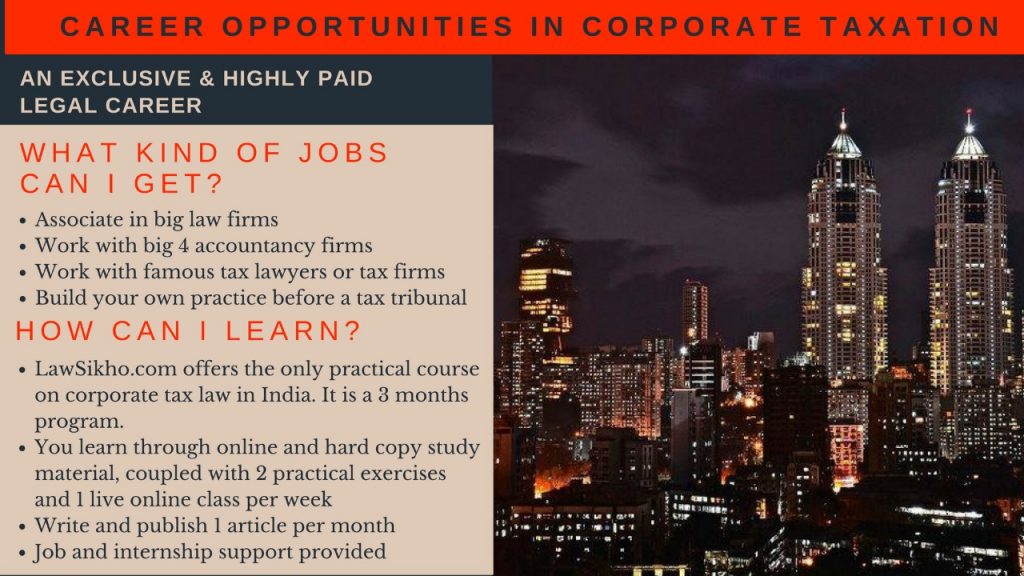This article is written by Amrita Basu, a student of New Law College, Bharati Vidyapeeth (Deemed) University, Pune.
An Non-Government Organisation,as we understand, is engaged with socio-economic activities catering to the needs of the general public at large and do not come under the ambit of the Income Tax Act, 1961. But this is a general mis-conception that we tend to have because of the truth of it being a non-profit organisation. Initially it was exactly the scenario but with increase in unscrupulous practices these NGOs were made liable to pay tax and also allowed exemption.
TAX LIABILITY OF NGOs:
All voluntary or charitable organisation as defined U/S.2(15) of the Act has the liability to pay service tax on the income actually received by them, except for that donation which has been specified to be ‘corpus’ by the donor in writing. However, the interest or dividend accrued on such fund can also be utilized.
As provided by the Act only 85% of the total income received by an NGO is to be utilized and the remaining 15% is accumulated for later use and corpus fund forms a part of such remaining income. And this accumulated income can be used within the next five years and if not used then shall be considered as the income of the eleventh year.
A public trust with an income of atleast 50,000 rupees or less or more than 50,000 needs to file a return to income every financial year.Further, if the voluntary organization in question has not been registered U/S.12A of the Act and earns an income that exceeds the minimum taxable limit then its total income and the corpus fund will be taxable on the amount excess.
In addition to all these, what has been made taxable are the kind of anonymous donations made by any organization or institutions or individual to a charitable organization at a rate of 30%. However,the Constitution of India has made such donations made to religious institutions non-taxable.
The Money Laundering Act, 2002 is applicable to the anonymous donations, irrespective of made to a charitable or religious institution. Accordingly whoever is found guilty under the Act, shall be punishable with an imprisonment for a term that shall not be less than three years but may extend to seven years and fine which may extend upto five lakh rupees.

BENEFITS AVAILABLE TO THE NGO & CONTRIBUTORS:
An NGO by getting itself registered u/s. 12A of the Act within a year from the date of its establishment can avail exemption from the payment of tax u/s.11 of the Act.
A resident of India having a taxable income and a non-resident having an Indian passport can claim for benefits if they have made a donation to an NGO which is registered with the Income Tax Department and holds tax exemption status u/s. 80G, 80GGA, 35AC(i& ii) and (i&iii) of the Act.
| SECTIONS | INCOME | EXTENT OF THE EXEMPTION |
| 11(1)(a) | Derived from property held under trust wholly for charitable or religious purposes | To the extent income is applied to such charitable or religious purposes in India. |
| 11(1)(c) | Derived from property held under trust for a charitable purpose, which tends to promote international welfare in which India is interested | To the extent income is applied to such charitable or religious purposes outside India.Exemption is available only if the Board has directed such exemption |
| Income in the form of voluntary contributions made with a specific direction that they shall form part of the corpus of the trust or institution | 100% exemption |
| SECTION | MADE TO | CONDITIONS APPLIED | EXTENT OF EXEMPTION |
| 80G | Any NGO, fund or institution established in India for a charitable purpose and fulfils the conditions laid down u/s.80G. | 10% ceiling of the Gross Total Income applies | 50% of the sum donated |
| 80G | Government or any NGO approved local authority , institution or association used for the promotion of family planning | 10% ceiling of the Gross Total Income does not apply | 100% of the sum donated |
| 80GGA |
Any university/college/institution in the list notified by the Income Tax department or association or institution or public sector company or a local authority or to an association or institution approved by the National Committee carrying out scientific researchOr rural developmental programs
Rural Development Fund or National Urban Poverty Eradication Fund set up and notified by the Central Government |
No ceiling to be applied | 100% exemption |
SPECIAL PROVISION AS U/S.80G:
1. A deduction to the extent of 100% of the contribution made if it has been made to the following:
a) The National Defence Fund or the Prime Minister’s National Relief Fund
b) The Prime Minister’s Armenia Earthquake Relief Fund
c) The Africa (Public Contribution-India) Fund
d) The National Foundation for Communal Harmony
e) The Chief Minister’s Earthquake Relief Fund, Maharashtra
f) The National Blood Transfusion Council
g) The State Blood Transfusion Council
h) The Army Central Welfare Fund
i) The Indian Naval Benevolent Fund
j) The Air Force Central Welfare Fund
k) The Andhra Pradesh Chief Minister’s Cyclone Relief Fund, 1996
l) The National Illness Assistance Fund
m) The Chief Minister’s Relief Fund or Lieutenant Governor’s Relief Fund, in respect of any State or Union Territory, as the case may be, subject to certain conditions
n) The University or educational institution of national eminence approved by the prescribed authority
o) The National Sports Fund to be set up by the Central Government
p) The National Cultural Fund set up by the Central Government
q) The Fund for Technology Development and Application set up by the Central Government
r) The national trust for welfare of persons with autism, mental retardation, cerebral palsy and multiple disabilities
2. A deduction to the extent of 50% of the contribution can be made if so has been made to either of the following:
a) The Jawaharlal Nehru Memorial Fund;
b) The Prime Minister’s Drought Relief Fund
c) The National Children’s Fund
d) The Indira Gandhi Memorial Trust
e) The Rajiv Gandhi Foundation
U/S. 35AC of the Act if an NGO gets registered the central government approves of the scientific research programs/projects to be carried out by such organization.
By making donations to such NGOs, a business or corporate organisation can get a deduction of 175% on the donated amount as has been amended by the Finance Act, 2010 which was previously 125%. Further, a deduction of 100% of the amount contributed from the taxable income of the assessee can be made under the Section and further no monetary ceiling is applicable on donations made U/S. 35AC of the Act.
WHAT HAPPENS TO THE PROFIT EARNED BY THE NGO?
The surplus income can be utilized to carry on with the activities towards the fulfillment of the objective of the particular NGO. The surplus can either be carried forward to the succeeding years without any kind of limitation or accumulated for a specific purpose. However the DTC proposes for the utilization of the 15% of the surplus or 10% of the receipts within three years in order to restrain the accumulation for a longer period and in such case where the surplus is not utilized it shall become taxable at a rate of 15%.
Further the profits earned by any charitable trust from a construction project cannot be subjected to exemption u/s.11 but be entitled to deduction u/s.80IB(10). However, if an NGO working for women empowerment earns profit by selling off the handicrafts made by the women employed by them shall not be made taxable.
When the revenue exceeds the expenses of the NGO, it is then that such organization earns profit. Therefore it can’t be implied from the nature of a charitable or voluntary or religious organization or any such organization that carries out social or economic or developmental programs to reach to those people where even the government cannot reach. It is actually the opposite. Profits earned by NGOs can be channelized in the most effective way if so is desired for.
LawSikho has created a telegram group for exchanging legal knowledge, referrals and various opportunities. You can click on this link and join:
https://t.me/joinchat/J_
 Serato DJ Crack 2025Serato DJ PRO Crack
Serato DJ Crack 2025Serato DJ PRO Crack









 Allow notifications
Allow notifications



Nice Article. I was looking for something like this.